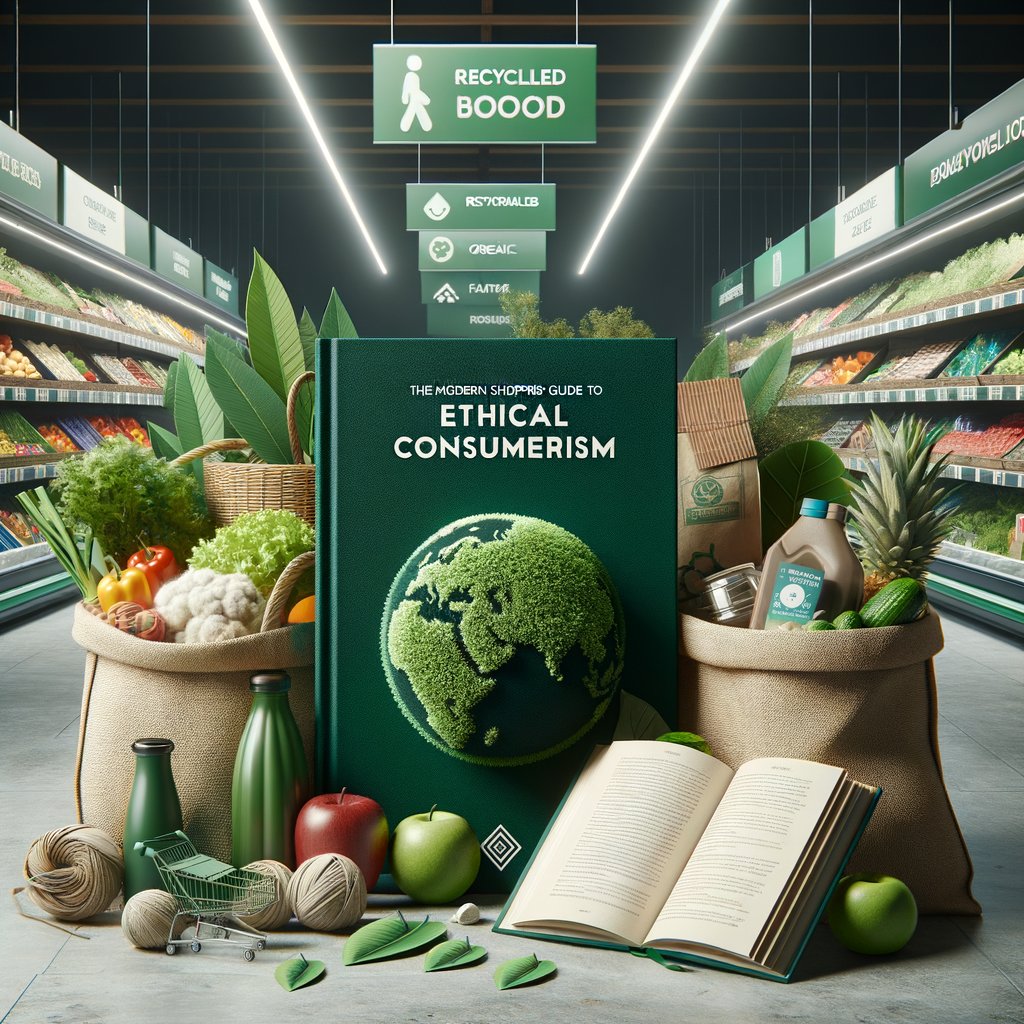Physical Address
304 North Cardinal St.
Dorchester Center, MA 02124
Physical Address
304 North Cardinal St.
Dorchester Center, MA 02124

Once upon a time, shopping was a simple affair. You’d walk into your local store, pick up what you needed, pay at the counter and voila! But alas, those days are long gone. In today’s world, every purchase we make carries with it a story – a tale of its creation and journey from raw material to finished product. This is where ethical consumerism comes into play.
Ethical consumerism, or the practice of choosing to buy products that are made in a way that minimises harm to people and the planet, is no longer just for dreadlocked hippies or tree-hugging enthusiasts. It has become an important part of mainstream shopping habits.
In our globalised world, every purchase we make impacts someone else somewhere on this Earth. The chocolate bar you’re enjoying? It might have been produced by child labour in West Africa. The trendy t-shirt you just bought? Perhaps it was sewn together by underpaid workers in unsafe conditions in Bangladesh.
As consumers, we have the power to influence these practices through our purchasing decisions. By choosing ethically produced goods, we can help promote fair treatment of workers and sustainable environmental practices.
Gone are the days when shoppers were solely focused on price and quality. Today’s consumers are increasingly aware of their impact on the world around them and are making more conscious choices as a result.
A study by Nielsen found that 66% of global consumers are willing to pay more for sustainably manufactured products – a figure that jumps to 73% amongst millennials! This shows that there is a real demand for ethical products, and businesses are starting to take notice.
So, you’re ready to become an ethical consumer – fantastic! But where do you start? One way is by looking out for ethical labels on products. These labels can tell you a lot about how a product was made and who made it.
While ethical consumerism sounds like a win-win situation, it’s not without its challenges. For one, ethically produced goods often come with a higher price tag, which can be prohibitive for some shoppers. Additionally, not all companies are transparent about their supply chains, making it difficult to verify their claims of ethical production.
In these cases, doing your own research can be invaluable. Look up companies online to see if they have any controversies surrounding their labour or environmental practices. Check out third-party websites that rate companies based on their social and environmental impact. Remember – knowledge is power!
The future looks bright for ethical consumerism. As consumers become more aware of the impact of their purchases, demand for ethically produced goods will only continue to grow. Businesses that can meet this demand while maintaining transparency in their supply chains will be the ones to thrive.
So next time you’re out shopping, take a moment to consider the story behind the products you buy. You just might find that your purchases can make a difference, not just for you, but for people and the planet too.
The world of ethical consumerism is vast and complex, but don’t let that deter you. Remember, every small step counts. As famed cultural anthropologist Margaret Mead once said, “Never doubt that a small group of thoughtful, committed citizens can change the world; indeed, it’s the only thing that ever has.”